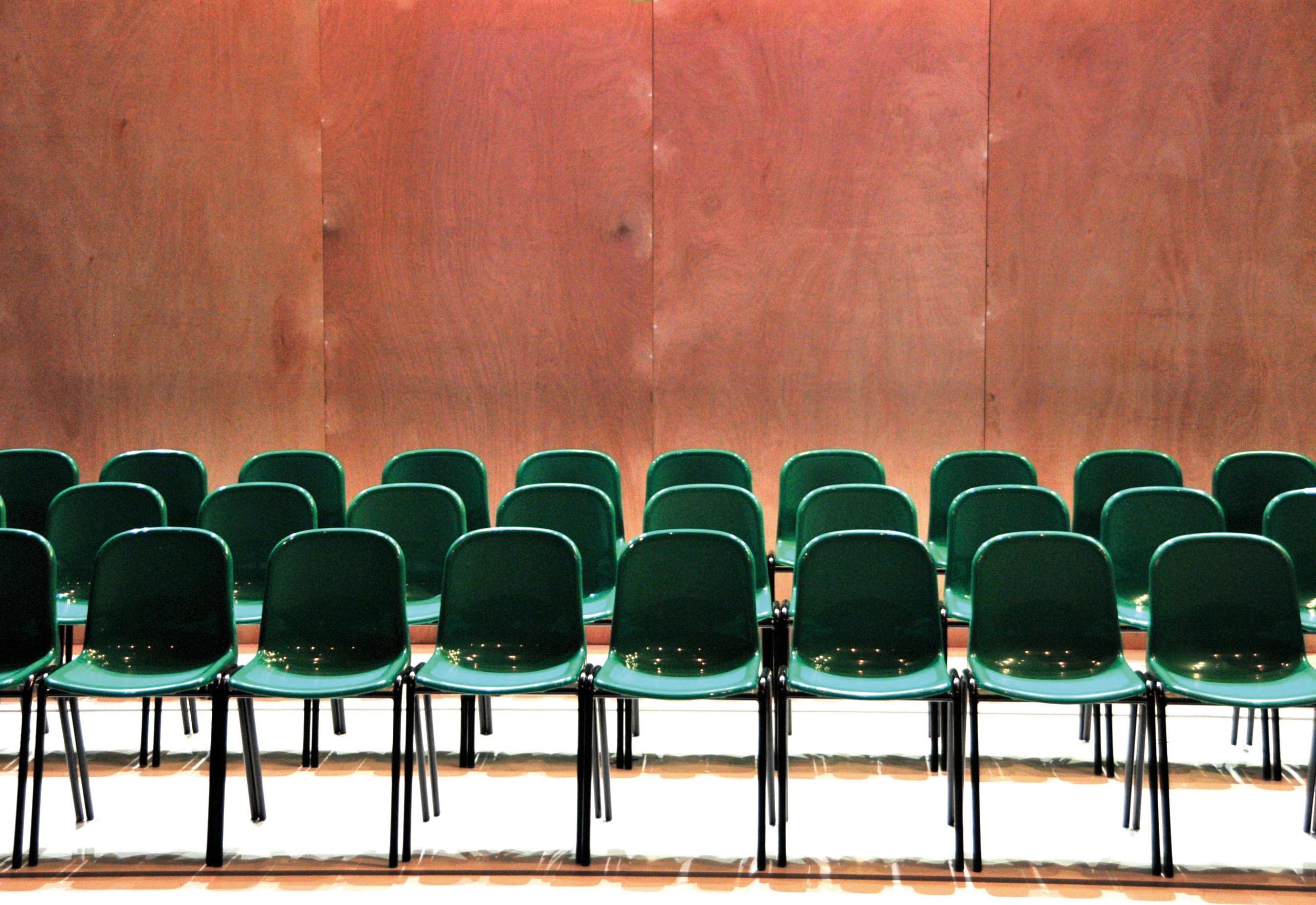Make-Believe

Proper theatre curtains, a hill of old clothes, 30 green plastic chairs, 5 performers including a 2 year-old boy and his parents. The audience eat ice cream, describe the history of the world from the very beginning and an air band play Guns N’ Roses… Make-believe asked tricky questions about birth, death and everything in between.
How do we decide what’s true? How do we manage to live together when we disagree so wildly with each other? How do we separate the real from the made-up in a piece of theatre?
How we made it
“I’ve become aware that some of the beliefs and values I’d pinned myself to are really not so certain anymore.
I wanted to make something that challenged me, those I work with and audiences to think about where our beliefs come from and how we act upon them. The piece also became about performance. I’ve found myself increasingly unwilling to suspend my disbelief when I’m sat in a theatre, more likely to dwell on who the actor is and what they might be really thinking about rather than what their fictional character was saying. It’s only in the live encounter that I have this problem – I can lose myself in a film as thoroughly as ever. But when I’m in a room with people I want a different kind of relationship.
I invited Professor Michael Brady of Glasgow University, one of my oldest friends, to join us in the process. He came into rehearsals and asked us a series of near-impossible questions. We scrabbled away at what we were trying to get at, discarding “believability”, “honesty” and “authenticity” en route, and arrived at an aspiration – we wanted to make a performance that had a quality of truthfulness.
Make-believe was a piece of theatre that wore its pretence firmly on its sleeve – and, I think, somehow felt truthful despite or because of that.”
Richard Gregory, Director
Performers: Lowri Evans, Marcus Hercules, Johanne Timm, Jeziel Warsama, Yusra Warsama
Director: Richard Gregory
Designer: Simon Banham
Writer: Sonia Hughes
Choreographer: Johanne Timm
Lighting Designer: Mike Brookes
Sound Designer: Greg Akehurst.
Make-believe was a co-production with Contact, Manchester and first performed there in November 2009. It toured in England to Leeds, Taunton, Coventry, Lancaster, Exeter and Bristol.
Dates
A performer’s perspective: Amy Guest, from the Centre for Applied Theatre Research at the University of Manchester, interviewed members of the cast and creative team of Make-believe for an essay on the relationship between contemporary performance and applied theatre. This is an extract of Amy’s interview with Make-believe performer Lowri Evans.
……impossible things before breakfast: Created by Quarantine’s designer Simon Banham during the rehearsals for Make-believe this CD Rom presents fragments of ideas and beginnings exploring the construction of a piece of theatre by Quarantine.
A performer’s perspective: Amy Guest, from the Centre for Applied Theatre Research at the University of Manchester, interviewed members of the cast and creative team of Make-believe for an essay on the relationship between contemporary performance and applied theatre. This is an extract of Amy’s interview with Make-believe performer Lowri Evans.
......impossible things before breakfast: Created by Quarantine's designer Simon Banham during the rehearsals for Make-believe this CD Rom presents fragments of ideas and beginnings exploring the construction of a piece of theatre by Quarantine.